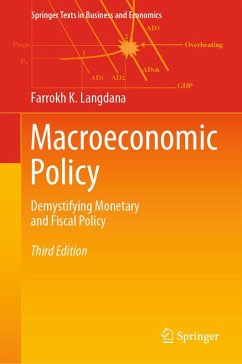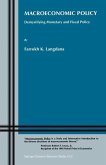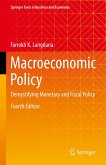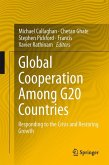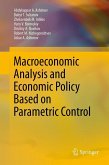This book is an applications-oriented text designed for individuals who desire a hands-on approach to analyzing the effects of fiscal and monetary policies. Significantly updated to provide an understanding of the post-financial crisis economy, the third edition covers the subprime crisis in detail, discussing monetary policies enacted in its wake, such as quantitative easing, tapering, carry trades, CMOs, and monetization. Even more globally oriented than previous editions, this volume links the Great Recession and US Monetary Policy to global hot capital flows and currency pegs. This edition also revisits the Eurozone in significant detail; discussing its history, its macroeconomic design challenges, and its present imperiled state, in the context of global macropolicy. Finally, this volume analyzes the "China syndrome" and explores the effects of slower trend growth in China on the rest of the world. India, with its different-almost supply-side-approach to macropolicy is also studied in detail. The third edition contains several brand-new cases and media articles that are carefully positioned to relate explicitly to theory, and to look ahead to and preempt global macro situations and polices in the years to come. MBA students and Executive MBA students who appreciate the importance of monetary and fiscal analysis will find this text to be right on target. Financial analysts and individual investors who need to strip away economic myths and jargon and systematically examine and understand the effects of macro policies on variables such as inflation, output, employment and interest rates, will also find the book extremely useful.¿
Dieser Download kann aus rechtlichen Gründen nur mit Rechnungsadresse in A, B, BG, CY, CZ, D, DK, EW, E, FIN, F, GR, HR, H, IRL, I, LT, L, LR, M, NL, PL, P, R, S, SLO, SK ausgeliefert werden.

